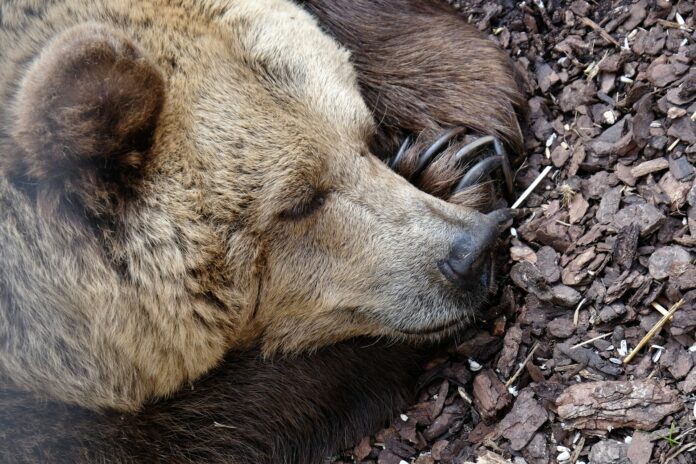Six people were diagnosed with trichinellosis after consuming undercooked black bear meat, highlighting the dangers of improper meat preparation
Six individuals contracted trichinellosis, a parasitic zoonotic disease, after eating a meal involving black bear meat kebabs. The Centers for Disease Control and Prevention (CDC) reported the incident this week, shedding light on the risks of consuming undercooked wild game meat.
In July 2022, a 29-year-old patient in Minnesota was hospitalized with suspected trichinellosis. The patient’s symptoms included fever, severe muscle aches, periorbital oedema (eye swelling), and eosinophilia (elevated levels of eosinophils, a type of white blood cell). The Minnesota Health Department promptly reported the case.
Embed from Getty ImagesThe patient had shared a meal with eight others, which included black bear meat that had been frozen for 45 days before being grilled and served rarely. The investigation revealed six cases of trichinellosis among the meal participants, including two individuals who consumed only vegetables cooked with the contaminated meat.
Trichinellosis is caused by Trichinella larvae, a type of roundworm found in carnivorous animals such as bears, wild boars, and walruses. Molecular testing confirmed that the larvae from the bear meat had been frozen for over 15 weeks and were identified as Trichinella nativa, a freeze-resistant species. The CDC emphasized that adequate cooking is essential to kill Trichinella parasites and prevent cross-contamination.
The report detailed that six days before symptom onset, the patient and eight family members from Arizona, Minnesota, and South Dakota gathered in South Dakota. They consumed black bear meat harvested in northern Saskatchewan, Canada, in May 2022. Initially, the bear meat was served rare, as the dark colour made it difficult to gauge doneness. When some family members noticed the meat was undercooked, it was recooked before being served again.
Three symptomatic individuals were hospitalized and received treatment with albendazole, a medication for various parasitic worm infections. All six symptomatic individuals recovered, though the non-hospitalized patients’ symptoms resolved with supportive care alone.
Trichinellosis is rare in the US, with most cases linked to wild game consumption. From January 2016 to December 2022, the CDC reported seven trichinellosis outbreaks, including 35 probable and confirmed cases, with bear meat as the primary source in most instances.
The CDC’s report highlights the importance of proper meat preparation, especially for wild game. Freezing meat does not guarantee the elimination of parasites, particularly freeze-resistant species like Trichinella nativa. Thorough cooking remains the only reliable method to ensure meat safety.
Analysis :
The recent trichinellosis outbreak underscores the significant risks associated with consuming undercooked wild game. This incident, involving a family in South Dakota, reveals several important considerations from various perspectives, including public health, food safety, and cultural practices.
From a public health standpoint, this outbreak illustrates the need for heightened awareness and education about zoonotic diseases. Trichinellosis, though rare, can have severe health implications. The CDC’s swift response and detailed report underscore the importance of surveillance and timely intervention to prevent widespread outbreaks. Health departments must continue to educate the public on the risks of consuming wild game and the necessary precautions to avoid infections.
Economically, trichinellosis outbreaks can strain healthcare systems and affect local economies, especially in regions where hunting and consumption of wild game are common practices. The cost of treating parasitic infections, coupled with potential lost workdays and decreased productivity, can have a notable impact. Moreover, such incidents can affect the hunting industry, potentially reducing tourism and associated revenues.
Culturally, the consumption of wild game is a tradition in many communities. Hunting and sharing game meat foster communal bonds and are integral to the cultural heritage of various groups. However, this tradition must be balanced with modern food safety practices. Educational initiatives tailored to these communities could help preserve cultural practices while ensuring public health safety. Collaboration with community leaders can facilitate the dissemination of safety guidelines and best practices for meat preparation.
From a gender perspective, women often play a significant role in food preparation and healthcare within families. Educating women about the dangers of undercooked meat and proper cooking techniques can have a ripple effect, enhancing food safety practices within households. Additionally, considering women’s pivotal role in family health management, targeted outreach can improve overall community health outcomes.
Race and minority perspectives highlight that certain communities, including Indigenous and rural populations, may rely more on wild game for sustenance. These communities might face greater exposure to zoonotic diseases due to traditional dietary practices. Ensuring that health messages are culturally sensitive and accessible is crucial. Providing resources and support to these communities can help mitigate the risks associated with wild game consumption.
In conclusion, the trichinellosis outbreak linked to black bear meat in South Dakota serves as a crucial reminder of the importance of proper meat preparation. The CDC’s findings emphasize the need for thorough cooking to prevent parasitic infections. Public health education, economic considerations, cultural sensitivity, and targeted outreach can collectively enhance food safety and protect communities from similar outbreaks in the future.
